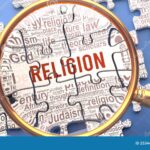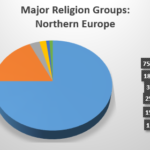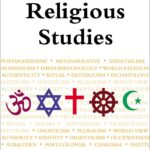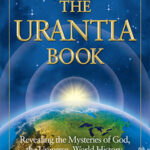Theodore Roosevelt's Religious Beliefs: Dutch Reformed Faith and Spiritual Journey
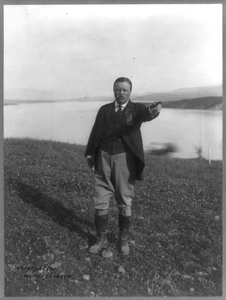
Theodore Roosevelt’s religious foundation
Theodore Roosevelt, the twenty-sixth President of the United States, was raise in the Dutch reformed church tradition. Bear into a prominent New York family, Roosevelt’s religious upbringing play a significant role in shape his moral compass and worldview throughout his extraordinary life.
The Dutch reformed church, officially known as the reformed church inAmericaa, represent one of the oldest protestant denominations in theUnited Statess. This religious traditionemphasizese personal responsibility, moral duty, and active engagement with the world — principles that would become hallmarks oRooseveltlt’s character and political philosophy.
Early religious influences and family background
Roosevelt’s religious education begin in his childhood home on east 20th street in Manhattan. His father, Theodore Roosevelt Sr., was a devout member of the Dutch reformed church and instill strong Christian values in his children. The family regularly attend services at the Fifth Avenue Presbyterian church, though they maintain their Dutch reformed identity.
The Roosevelt family’s religious practices extend beyond Sunday worship. Daily prayers, bible readings, and discussions about moral obligations were common household activities. These early experiences create a foundation of faith that would influence Roosevelt’s approach to public service and personal conduct throughout his life.
Roosevelt’s mother, Martha Bullock Roosevelt, come from a southern Presbyterian background, add another layer of protestant influence to his religious formation. This combination of Dutch reformed and Presbyterian traditions provide Roosevelt with a robust understanding of protestant theology and ethics.

Source: thecollector.com
Dutch reformed church beliefs and practices
The Dutch reformed church tradition that shape Roosevelt’s faith emphasize several key theological principles. Central to this denomination was the belief in predestination, the authority of scripture, and the importance of live a life that reflect Christian values in all aspects of society.
Unlike some protestant denominations that emphasize withdrawal from worldly affairs, the Dutch reformed tradition encourage active participation in civic life. This theological perspective align utterly with Roosevelt’s natural inclination toward public service and social reform.
The church’s emphasis on education and intellectual inquiry likewise resonate with Roosevelt’s scholarly nature. Dutch reformed theology value learning and critical thinking as means of understand god’s will and purpose. This intellectual approach to faith would posterior influence Roosevelt’s progressive political positions and his belief in use government as a force for moral good.
Roosevelt’s personal faith journey
Throughout his life, Roosevelt maintain a personal relationship with Christianity that was both deep feel and much apply. His faith was not but ceremonial but serve as a guide force in his decision make process and moral reasoning.
Roosevelt’s religious convictions were test during periods of personal tragedy, include the death of his first wife, Alice Hathaway lee Roosevelt, and his mother on the same day in 1884. During these dark moments, his faith provides comfort and strength, though he sometimesstrugglese with questions about divine providence and human suffering.
His correspondence and diary entries reveal a man who take his Christian beliefs gravely while besides wrestle with intellectual doubts and questions. Roosevelt approach faith with the same vigor and honesty that he bring to all aspects of his life, refuse to accept easy answers or superficial religious platitudes.
Faith and political philosophy
Roosevelt’s Dutch reformed background importantly influence his political philosophy and approach to governance. The concept of stewardship, central to reformed theology, shape his conservation efforts and his belief that those in positions of power had moral obligations to protect and preserve resources for future generations.
His famous” square deal ” omestic policy reflect chChristianrinciples of fairness and justice. Roosevelt bebelieveshat ggovernment hasa moral responsibility to ensure that all citizens have equal opportunities to succeed and that powerful interests could not exploit the weak or vulnerable.
The social gospel movement, which seek to apply Christian principles to social problems, find a sympathetic ear in Roosevelt. While he was not officially associate with this movement, his progressive policies regard labor rights, consumer protection, and corporate regulation reflect similar theological concerns about social justice and moral responsibility.
Religious tolerance and ecumenical spirit
Despite his strong personal faith, Roosevelt demonstrate remarkable religious tolerance for his era. He appoints catholics,Jewss, and members of various protestant denominations to government positions, judge individuals by their character and competence quite than their religious affiliation.
Roosevelt’s approach to religious diversity reflect the Dutch reformed tradition’s emphasis on individual conscience and personal relationship with god. While he remains committed to his own faith tradition, herecognizese that sincere religious conviction could take many forms.
His friendship with people of different faiths, include Jewish financiers and catholic politicians, demonstrate his ability to separate personal religious beliefs from public policy decisions. This ecumenical spirit would become progressively important as America become more sacredly diverse.
Church attendance and public worship
Throughout his adult life, Roosevelt maintain regular church attendance when circumstances permit. During his presidency, he frequently attends services at variousWashingtonn, d.c., churches, include grace reformed church and other protestant congregations.
Roosevelt view public worship as both a personal spiritual discipline and a civic responsibility. He believes that religious observance set a positive example for theAmericann people and demonstrate the importance of faith in public life.
His approach to public religion was neither ostentatious nor hide. Roosevelt speak openly about his faith when appropriate but avoid use religious language for strictly political purposes. This balanced approach reflect his genuine conviction that faith should inform public service without become a tool for political manipulation.
Biblical influence on Roosevelt’s worldview
Roosevelt’s extensive knowledge of scripture influence his understanding of leadership, justice, and moral responsibility. He often quotes biblical passages in his speeches and writings, draw especially from theHebreww prophets and the teachings ofJesuss about social justice and moral courage.
The biblical concept of righteous anger resonate powerfully with Roosevelt’s temperament and political style. Like the Hebrew prophets who condemn injustice and call for moral reform, Roosevelt see himself as a voice for righteousness in American politics.
His famous phrase” speak lightly and carry a big stick ” eflect a biblical understanding of strength temper by wisdom and restraint. Roosevelt bebelieveshat true power should be exercise with moral purpose and divine accountability.
Legacy of faith in public service
Roosevelt’s integration of faith and public service create a model for Christian political engagement that influence subsequent generations of American leaders. His example demonstrate that deep religious conviction could coexist with pragmatic political action and respect for religious diversity.
The Theodore Roosevelt association and various historical societies continue to study the relationship between his faith and his public service. Scholars recognize that understand Roosevelt’s religious beliefs is essential to comprehend his motivations and the moral framework that guide his remarkable career.

Source: comicbookreligion.com
Modern political leaders from both parties have citedRooseveltt’s example of principled leadership inform by religious conviction. His ability to maintain personal faith while serve allAmericanss irrespective of their religious beliefs remain relevant for contemporary discussions about religion’s role in public life.
Conclusion: a faith informed legacy
Theodore Roosevelt’s Dutch reformed faith provide the moral foundation for one of America’s most dynamic presidencies. His religious convictions shape his approach to conservation, social justice, and international relations while maintain respect for the religious diversity that characterize American democracy.
Roosevelt’s example demonstrate that authentic religious faith can enhance quite than diminish effective public service. His legacy continue to inspire those who seek to integrate personal conviction with public responsibility, show that deep faith and inclusive leadership can work unitedly to serve the common good.

